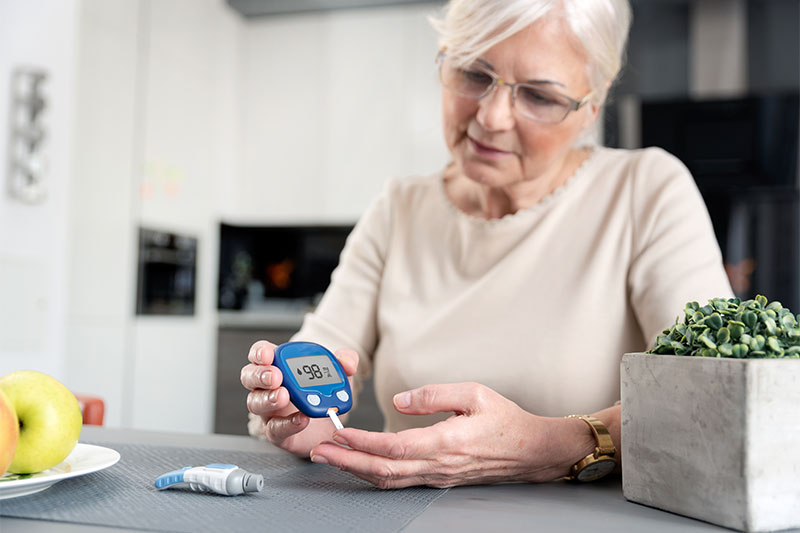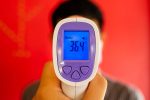
You have been feeling fatigued and your friends and family in a gentle way tell you that you have an acetone odor coming from your breath. You know your diet has been poor for many years, you are overweight, and you are not active. You finally go to the doctor and you are given the diagnosis of type 2 diabetes. Type 2 diabetes is when the pancreas does not produce enough insulin to break down your blood glucose, or your insulin does not recognize glucose to break it down. Type 2 can escalate to Type 1 if you do not take care of yourself as if you go all the way to Type 1 diabetes, your pancreas will no longer work and produce insulin. Therefore, you have to be treated with insulin injections.
In the case of Type 2 diabetes, that is not usually necessary. Your doctor will instruct you to check your blood sugar levels several times a day, and also potentially prescribe you medications such as Metformin to help reduce insulin resistance. You may also be referred to a dietician who can guide you on the foods to eat and the foods to limit. You will also be told to exercise by taking a brisk walk for a half-hour a day which is enough to get you moving. If you take these steps seriously, you can live a normal life. There is no guarantee in the end that your diabetes will not escalate to Type 1 even if you do care for yourself because unfortunately, the condition may end up progressing. However, you can certainly delay that from happening and live a good life in the meantime. It will take extra work on your part to ensure that.
How Often To Test Blood Sugar
You should test several times a day. Once in the morning, once mid-day, and once in the evening to see what levels your sugars are at so you know of any changes to make. If your blood sugar is too low, you need to eat, and you will feel light-headed. If it is too high, perhaps going for an exercise session is the thing to do to help burn off energy.
Learn The Glycemic Index
The glycemic index provides you with information about slower-acting carbs such as ‘good carbs’ that you would get from whole grains, most fruits, and most vegetables. The foods that are high on the glycemic index are the ‘bad carbs’ or the carbs that release energy too fast which can overwhelm your pancreas. That means candies, white flour, white rice, and some fruits and vegetables that have starch such as bananas, squash, and potatoes measure high on the glycemic index. You don’t need to avoid those foods but limit them instead. You will need guidance from a nutritionist and you need that for portion sizes and caloric intake as well.
Alcoholic Intake With Diabetes
Alcohol can cause your blood sugar to spike and that does not mean to avoid it, but you will need to talk to your doctor and dietician about how to drink in a safe way. You can enjoy a drink (or even a sugary treat like a sundae) once in a while without it causing problems.
Make Exercise A Part Of Your Routine
Exercise is essential for everyone, and it is critical for those who are diabetic. You do not need to join a gym if you don’t want to do that. But you must schedule exercise time for a half-hour a day taking a brisk walk whether it is outdoors or going on the treadmill to help keep your blood sugar levels normal. Lifting weights is a good idea too.
Work With Your Doctor
It is essential to make appointments with your doctor often to be checked often so you know you are keeping your blood sugar levels as normal as you can. You cannot neglect your diabetes, and you don’t want to do that at all. The worst thing you can do is skip doctor’s appointments even if you are taking care of yourself. You could still end up with other illnesses that you don’t know. Your doctor is your friend!


